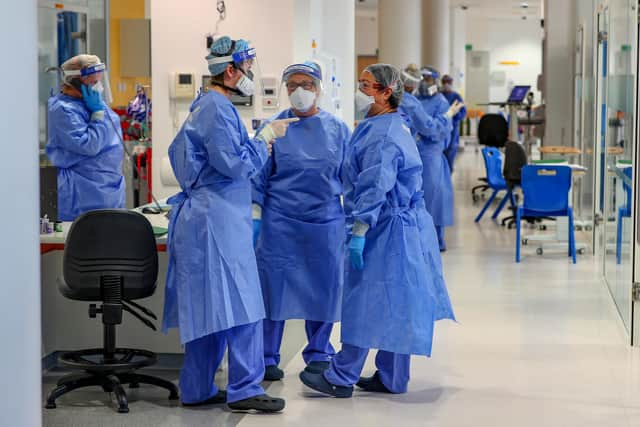UK warned ‘25,000 in hospital next month' with fears second wave more deadly than first
and live on Freeview channel 276
Boris Johnson is now under growing pressure to impose heightened coronavirus restrictions as the UK recorded its highest daily Covid-19 death toll since May.
On Tuesday, the Government said that a further 367 people died within 28 days of testing positive for Covid-19, while there were another 22,885 lab-confirmed cases of the virus.
Advertisement
Hide AdAdvertisement
Hide AdThe number of deaths is the highest daily figure since May 27, when 422 deaths were reported.


It comes as fears were raised of the second wave being more deadly than the first.
Asked if it is not unrealistic to think of 25,000 people being in hospital by the end of November, Sage member Professor Sir Mark Walport said: “It’s certainly not unrealistic to think about that.”
On hospital admissions, he told BBC Radio 4’s Today programme: “France, which has a very similar population to us, currently has about 16,000 people in hospital, it’s got 2,500 in intensive care beds compared with 852 here, and roughly half the ICU beds in France are occupied; we’re seeing similar things in Spain.
Advertisement
Hide AdAdvertisement
Hide Ad“And these are in spite of these countries taking strong measures as well.
“So, the answer is that with our current measures, which are similar but with variations in different parts of Europe, there’s still evidence that it’s not – there isn’t as much social distancing as there were when we clamped down on the first wave and so we know that the risk is significant that cases will continue to grow.
“The numbers speak for themselves.”
The Sage member told BBC Radio 4’s Today programme: “The number of cases is rising very significantly – it was 22,800 on 27 October and the seven-day average was just over 22,000, so there are an awful lot of cases.
“One of the differences of course is that we are better at looking after people with coronavirus now and so hopefully the case fatality rate will be lower than it was in the first wave, but at the end of the day the fatality rate, the number of people who die is a product of the number of people who are infected and their vulnerability.”